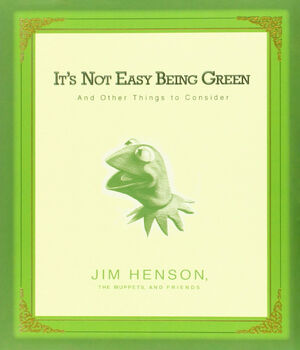
The Canberra Times had its usual share of junk tucked into it today, but layered under the Spotlight sale catalogue was a booklet-shaped advertising feature called Imaginem, 'Your 24-page guide to promoting your brand or business with the help of Canberra's "creatives"'.
Flipping through the pages, glancing at the different pleas for being more creative than the team on the next page, I came across an article called Print is Greener by Rodney Wade, a sustainability consultant. It's a ripper little piece about print reading vs online, and uses The Stern Review on the Economics of Climate Change, a 700-page report, as its example:
Print 85g
The printed version of The Stern Review was validated as 85 grams of CO2 in total for the complete manufacturing process and the paper. Because it is a finished printed book, that is the maximum CO2 it will ever amount to and can be read as many times as you like over the next 100 years.
Online 226g
For every hour that a person reads The Stern Review in PDF format on a typical desktop computer, 226 grams of CO2 are generated. This does not include the CO2 footprint for the IT infrastructure to deliver the PDF via the Internet, nor does it include the footprint to print it out on an inkjet or laser printer. Of course, a typical reader will print out parts or all of the repoprt. Why? Because the majority of people generally prefer to read from hard copy.
CD 300g
A study in 1007 by Australian Dr Tony Wilkins, Group Manager, Environment and Climate Change for News Ltd, has validated that the manufacture of a CD with The Stern Review data generates 300 grams of CO2 per disk or a DVD 350 grams and that is even before it is put into a computer and viewed or printed.
I'm interested in whether he factored into the print version the energy needed to distribute the volume, by post or via bookshops, but even so, they are very impressive figures.
One of the first things I read online this morning (via Editorial Anonymous) was about the declining state of school libraries in Britain, which is an article less about computers taking over books and more about ignorant ideas of staffing needs, but still, in a world where people think children are getting a well-rounded education from computers alone, shouldn't this sort of environmental calculation be taken into account?
Walk with me, tell me what you think. Are books sustainable, really?
5 comments:
As a librarian who qualified in digital and special collections, I mourn the need for libraries all over the world to dump their print collections and out everything online. Not just for the immediate sustainability effects, but because, although I do enjoy my internet, I have a deep distrust of it. If things are not put down on paper, one day it all may be lost forever. And I don't think many people realise that. So to sustain knowledge and information for future generations - I'm all for print publications - as long as they are necessary.
(Of course, the more traditional the printing the better. I've never been happier than standing in front of an Albion and seeing the results of a letterpress project.) But you know the buzz I'm talking about.
Its sounds like you're well on the mend. Good to hear.
My response is this: you cannot cuddle up in bed with a computer.
Repeat: you cannot cuddle up in bed with a computer.
Books are here to stay. Thankfully.
But importing books is a terrible carbon emitting sin. Calculations I've seen suggest every kilo of books airfreighted in gives us 6 kgs of CO2. Yep those books bought from Amazon or Book Depository....
So - print local, buy local. The only thing publishers & distributors should be importing are the print ready files by email from the UK or US & doin' it POD here.
Agree with all that CF. Plus, once you have a book you have it. Nobody can remove it from the bookshelf or tamper with it. Net content isn't under our control. And some things will NEVER be on the net.
And yep, you can't take a computer to bed, thankfully.
Umm, well one can take a lap top to bed (that's normal right?!), but I do think the book is alive and well.
I know that at one of the university libraries I have access to the powers that be are all jiggy with the ebook. I have a friend who is a liaison librarian who tries to tell them that people still want to check out books rather than read them on line, but they don't listen to her, dismiss her as not-hip-to-the-groove-with-the-young-thangs. She urges me as a staff member--a-not-so-young-thang--to complain. So I do.
When I last made an interlibrary loan request I said I wanted a copy of the book to read in a way that wouldn't cause me long term retinal damage. I'm doing very well all by myself on that between blogging and Facebook. The other thing that is so incredibly irritating about the ebook is that yes of course I want to print it out to preserve my tired, red eyes, but of course there's a limit to how many pages I can print out due to copyright, schmopyright.
So, emphatically, yes! The future of the book is secure, even without those impressive statistics. And, as you would well know, some of us have fetishes for the sight and feel of a physical book as a work of art in its own right.
Post a Comment